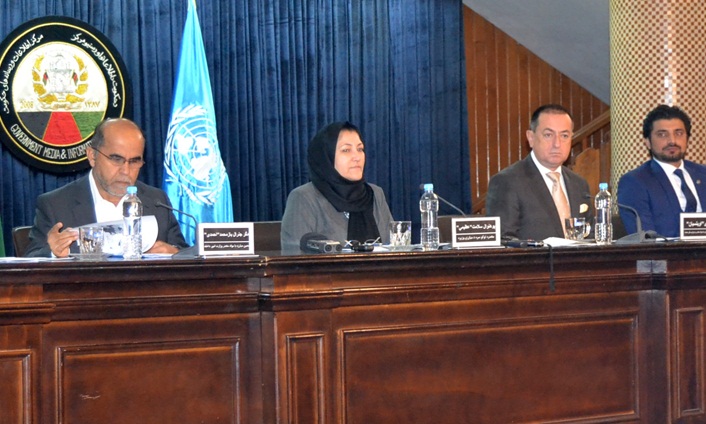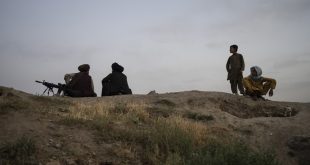By Farhad Naibkhel-KABUL: A survey prepared with the ministry of counter-narcotics and the United Nations Office on Drugs and Crime, says a 43-percent increase in the opium product so far this year.
The survey adds that the poppy cultivation had 10 per cent increase, compared to the same period last year.
“In 2016, the estimated opium production amounted 4,800 tons which indicates an increase of 43 percent,” said counter-narcotics minister Salamat Azimi, adding that the ceiling of opium product was 3,300 tons in 2015.
She said that the total areas under opium poppy cultivation in Afghanistan were 201,000 hectares in 2016, demonstrating 10 percent increase.
Azimi called insecurity as main reason for increase of poppy cultivation.
The survey revealed that in 2016, 93% of the total opium poppy cultivation in Afghanistan took place in the Southern, Western and Eastern regions of the country. The Southern region accounted for 59% of the total cultivation; the Western for 25% and the Eastern for 9%. The remaining regions (Northern, Northeastern and Central) together accounted for 7% only.
Helmand remained the major poppy cultivation province with 80,273 hectares under cultivation, followed by Badghis with 35,234 hectares, Kandahar 20,475 hectares, Uruzgan 15,503 hectares, Nangarhar 14,344 hectares, Farah 9,101 hectares, Badakhshan 6,298 hectares and Nimroz (5,303 hectares.
In 2016, the number of poppy-free provinces decreased from 14 to 13. Poppy cultivation in the northern Jawzjan province was estimated 409 hectares, which lost poppy-free status that had gained in 2008.
A total of 355 hectares of poppy eradication was carried out by the provincial governors in 2016 as verified by ministry of counter-narcotics and the UN, representing a 91% decrease from 2015 when 3,760 hectares were eradicated.
In 2016, eradication took place in seven provinces compared to 12 provinces in 2015: Badakhshan, Kandahar, Laghman, Nangarhar, Nimroz, Sar-e-Pul and Takhar.
Most of the poppy eradication took place in Badakhshan with 270 hectares; 78% less than in 2015. No eradication took place in the provinces with high levels of opium poppy cultivation dueto the extremely poor security situation in those areas and logistical/financial challenges toorganize theeradication teams on time.
Deputy interior minister for counter-narcotics, Baz Mohammad Ahmadi, said 1,408 smugglers were arrested in 1,263 operations in the past seven months.
He said that 237.5 tons of narcotics were discovered and confiscated.
“Twelve police, five soldiers and four foreign nationals were also arrested on the charge of drug trafficking,” he added.
Ahmadi insisted that police would increase operations.
The United Nations drug and crimes office country director for Afghanistan, Andrey Avetisyan, termed increase of opium a disturbing issue.
He urged the relevant organs and international community to boost up coordination in order to fight better against narcotics cultivation across the country.
He also asked the related organs to focus more over alternative programs in order to motivate farmers for stopping poppy cultivation.
 Afghanistan Times
Afghanistan Times




